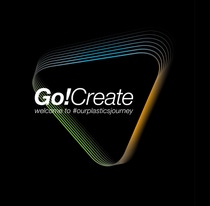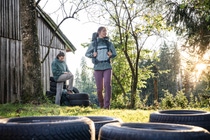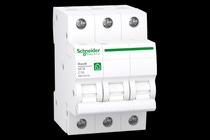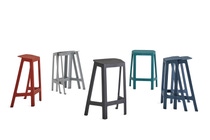Media
BASF at K 2022: Accelerating the journey towards a sustainable future with plastics
- At K 2022 trade fair in October 2022, BASF will present its ‘Plastic Journey’ (MAKE – USE – RECYCLE) towards a more sustainable plastics economy
- BASF invites all customers and partners to join the Plastics Journey and to co-create solutions how plastics are made, used and recycled in a more sustainable manner
- BASF will showcase sustainable solutions for industries such as Automotive, Construction, Packaging – accompanied by expert panel discussions
Ludwigshafen, Germany – June 21, 2022. BASF will present its journey to advance towards the goal of a circular economy at K 2022 trade fair, which is the #1 trade fair for plastics and rubber. K 2022 takes place in Düsseldorf, Germany, from October 19 – 26, 2022, celebrating its 70th anniversary. BASF has been exhibiting at K ever since the trade fair debuted back in 1952, continuously showing its commitment to the plastics industry and ability to create breakthroughs together with its customers.
“At K 2022, our theme is ‘Go!Create – Welcome to Our Plastics Journey’,” says Dr. Martin Jung, President Performance Materials, “We invite all visitors to join our journey towards a sustainable future with plastics. We will show products and solutions and more than that we want to give insights in our concepts and plans. The Plastics Journey towards a more sustainable economy needs a co-operative approach and this has a long way to go. That’s what we want to express.” The Plastics Journey consists of three phases which represent the lifecycle of plastics: MAKE, USE, and RECYCLE. BASF offers market-leading products and solutions for all three phases of this journey.
“We will demonstrate our capabilities and thoughts at K 2022 exhibiting numerous co-creation projects with partners and customers from industries like Automotive, Construction, E&E, Packaging, and Consumer,” Jung adds, “These projects range from products that have net-zero or low Product Carbon Footprints to new products made from recycled raw materials to conserve fossil raw materials. As an integrated company with our own base chemical production, we are a key enabler in helping our customers decarbonize their value chains.” BASF has committed to reducing CO2 emissions by 25% by 2030 and reaching net zero CO2 emissions by 2050.
Another strong focus will be on digital and data-driven value chain models that help BASF’s customers transform towards a CO2 neutral future. In this area, BASF has introduced an industry-leading digital application to calculate the CO2 emissions of around 45,000 BASF sales products.
MAKE: BASF solutions improve how plastics are made
“The MAKE phase is about improving how plastics are made – from product design to the choice of raw materials and the manufacturing process itself,” explains Jung. At K 2022, BASF will present solutions to track and reduce the Product Carbon Footprint along the entire value chain of different industries. For example, BASF is a member of Catena-X, a collaborative effort of the automotive industry to build a data driven ecosystem.
BASF will also showcase a number of solutions to reduce the Product Carbon Footprint using renewable or recycled feedstock like in the case of the Styrenics portfolio in packaging and construction. BASF’s biomass balance certified materials are also used by customers from the furniture industry or by a safety shoe brand offering a carbon neutral safety shoe containing BASF’s biomass balance polyurethane certified according to REDcert2. Another example how plastics and thereby consumer products can be manufactured more sustainably are outdoor pants made of raw materials obtained via the chemical recycling of end-of-life tires using BASF’s Ultramid® Ccycled™.
USE: BASF solutions improve the performance of plastics
“Plastics come with many sustainability benefits,” emphasizes Jung, “In the USE phase of their lifecycle, plastics play out all their strengths: by improving energy efficiency through their light weight, by prolonging product lifecycles thanks to their robustness and peak performance, and by enabling more sustainable applications in sectors such as e-mobility and household appliances.”
At K 2022, BASF will show several examples of plastics being true performance materials for sustainability: from safe and durable polyamides for high-voltage components within the e-mobility charging infrastructure to enabling a green miniature circuit breaker (MCB) for the E&E business that uses a 100% recycled PA6 based compound using pyrolysis oil from end-of-life tires – without any compromise on the MCB’s robustness. BASF plastics also help improve energy efficiency, for example for customers in the refrigeration industry that face high requirements to achieve the highest energy label.
RECYCLE: BASF solutions improve the recycling methods of plastics
“The crucial question about plastics is what happens to them at the end of their life,” emphasizes Dr. Martin Jung, “To achieve a circular economy, we need to get much better at the recycling of plastics to close the loop.”
To advance the RECYCLE phase of the Plastics Journey, BASF offers several product packages that pursue and expand all existing recycling methods. While the BASF subsidiary trinamiX offers innovative mobile near-infrared (NIR) spectroscopy solutions for sorting and identifying different types of plastic waste, BASF’s IrgaCycle™ is a new range of additive solutions that improves the mechanical recycling of plastics. For chemical recycling, BASF offers a variety of products containing raw materials obtained via ChemCycling™. To complete the recycling methods, the BASF booth also features the certified compostable biopolymer ecovio®: It supports organic recycling of food waste and food-soiled packaging thus increasing the diversion of food waste from landfill and incineration.
Creator Talks: A discussion platform for experts and visitors
To offer all visitors insights into the co-creation process with customers and partners and to take them along the Plastics Journey, BASF will host a series of daily ‘Creator Talks’ at its booth. For these talks, which will be announced on BASF’s K 2022 website and on social media over the next weeks, experts and thought leaders from different fields will discuss solutions to the most pressing challenges their industries are facing. Topics range from digital simulation solutions to charging infrastructure and recycling solutions.
BASF at K 2022: Welcome to #OurPlasticsJourney!
Go!Create! At K 2022, we invite everyone to join #OurPlasticsJourney! At our booth in hall 5, C21/D21, we will explore new ways in which sustainable action is possible in all phases of the lifecycle of plastics: from how we can produce plastics more sustainably, to how we can use them better, to how we can discover new solutions to close the loop. Solving these challenges is a journey that we are all on together. At K 2022, we want to make that journey go faster. K is the #1 trade fair for plastics and rubber and will take place in Düsseldorf, Germany, from October 19 – 26, 2022. Visit www.plastics.basf.com/K2022.
About BASF
At BASF, we create chemistry for a sustainable future. We combine economic success with environmental protection and social responsibility. Around 111,000 employees in the BASF Group contribute to the success of our customers in nearly all sectors and almost every country in the world. Our portfolio comprises six segments: Chemicals, Materials, Industrial Solutions, Surface Technologies, Nutrition & Care and Agricultural Solutions. BASF generated sales of €78.6 billion in 2021. BASF shares are traded on the stock exchange in Frankfurt (BAS) and as American Depositary Receipts (BASFY) in the U.S. Further information at www.basf.com.
P-22-265




